Caterer members of ECEP share best practices to help each other succeed
By Liese Gardner
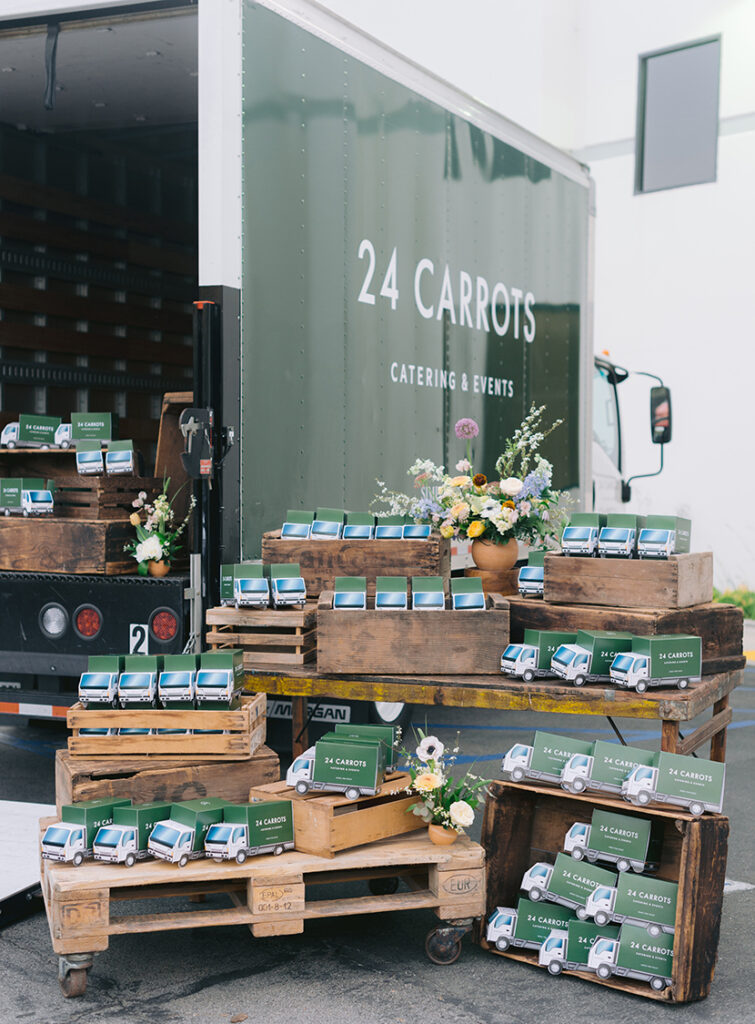
In 1937, author Napoleon Hill coined the term “master mind” in his influential book Think and Grow Rich, which has sold more than 20 million copies. “Success does not come without the cooperation of others,” said Hill—a concept that has motivated generations of business leaders to share best practices, exchange ideas and thus create more wealth.
A new catering industry group, Elite Catering + Event Professionals (ECEP), is harnessing the power of the master mind for the benefit of its members. The group got its start in 2021, in the midst of the COVID pandemic, when executives from four companies came together to elevate the battered catering and events industry through innovation, education and advocacy. Founding members include:
Susan Lacz, CEO of Ridgewells Catering in Bethesda, Maryland (ECEP’s inaugural president)
Michael Stavros, partner and vice president of business development of M Culinary Concepts in Phoenix (ECEP’s inaugural vice president and current president)
Brandon Maxwell, co-founder and CEO of M Culinary Concepts
John Crisafulli, president of Behind the Scenes Catering and Events in San Diego
Adam Noyes (CEO) and Ben Witte (COO) of Proof of the Pudding in Atlanta
Together with an additional 11 charter member companies, ECEP’s members represent more than $450 million in annual revenue and employ thousands of workers.
“The pandemic revealed our industry’s need of advocacy, leadership and collaboration,” says Lacz. “The ideas and best practices shared by this group helped me—and all ECEP members—navigate through the pandemic.”
Advocacy and Education
Early on, ECEP established a partnership with the National Automatic Merchandising Association (NAMA) and its professional lobbying arm to secure a voice in Washington. This alliance was solidified through the efforts of ECEP member Scott Halloran, CEO of Trolley Hospitality Companies and a fellow NAMA member.
As a part of NAMA, ECEP made its presence felt in Washington on various issues directly impacting catering and hospitality businesses. These matters ranged from addressing cannabis catering concerns in California to tackling nationwide issues like catalytic converter theft and advocating for the Employee Retention Tax Credit.
During the annual ECEP Symposium—the third of which took place in March in Charleston, South Carolina—members receive updates on congressional activities and engage with a diverse lineup of presenters representing various industries. This educational event serves as an extension of the group’s regular monthly online meetings, offering a broader scope of knowledge-sharing. Importantly, it extends its reach beyond business owners by including team members from various departments, such as operations, culinary, marketing and sales.
Collective Knowledge
ECEP members go through a vetting process to attain membership, with just one or two companies added each year. Just as followers of the original master mind concept helped each other survive and thrive after the depression, ECEP members share best practices as hedges against events such as another pandemic, economic fluctuations and whatever else might come their way.
ECEP members excel in various ways, helping others in the group who follow their lead. Examples include:
1. Sustainability
All great cuisine begins in the dirt. Although this isn’t something guests think about, it’s something the team at M Culinary Concepts thinks about all the time. Their commitment to sustainability starts at the core of the food cycle—with honeybees, worms and a healthy obsession with dirt.
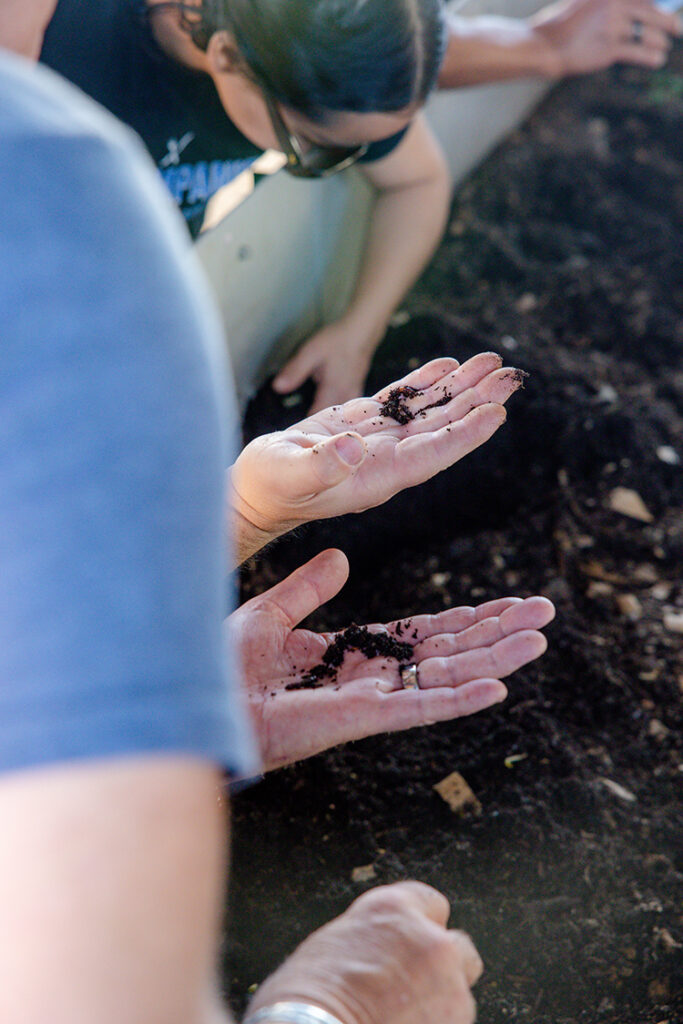
“We began thinking very seriously about this in 2011, when we began a zero-waste challenge working on the Waste Management Phoenix Open,” says M Culinary’s Stavros. “Our sustainability focus has shifted from direct efforts [such as recycling] to an expanded focus on the food cycle itself.”
M Culinary has been eagerly exploring avenues to become beekeepers, since the survival rate of bees is in danger. Stavros has looked into starting a program on property through Alveole, a Canadian company that promotes urban beekeeping, and is considering supporting The Bee Cause Project, which offers a variety of beekeeping grants to schools and nonprofit organizations.
While bees get a lot of media buzz these days, not as many talk about worms. Yet worms are an important part of the food cycle, helping to produce vitamin-rich compost that aids in food production.
M Culinary chefs collect food scraps during pre-event prep, and food waste from post-event clean-up, and donate them to the Arizona Worm Farm, which uses the material to feed worms. The worms are then fed to chickens, whose eggs are sold to the public—with proceeds donated to local charities. The Worm Farm also produces mulch, which is sold to local farmers, landscapers and home gardeners.
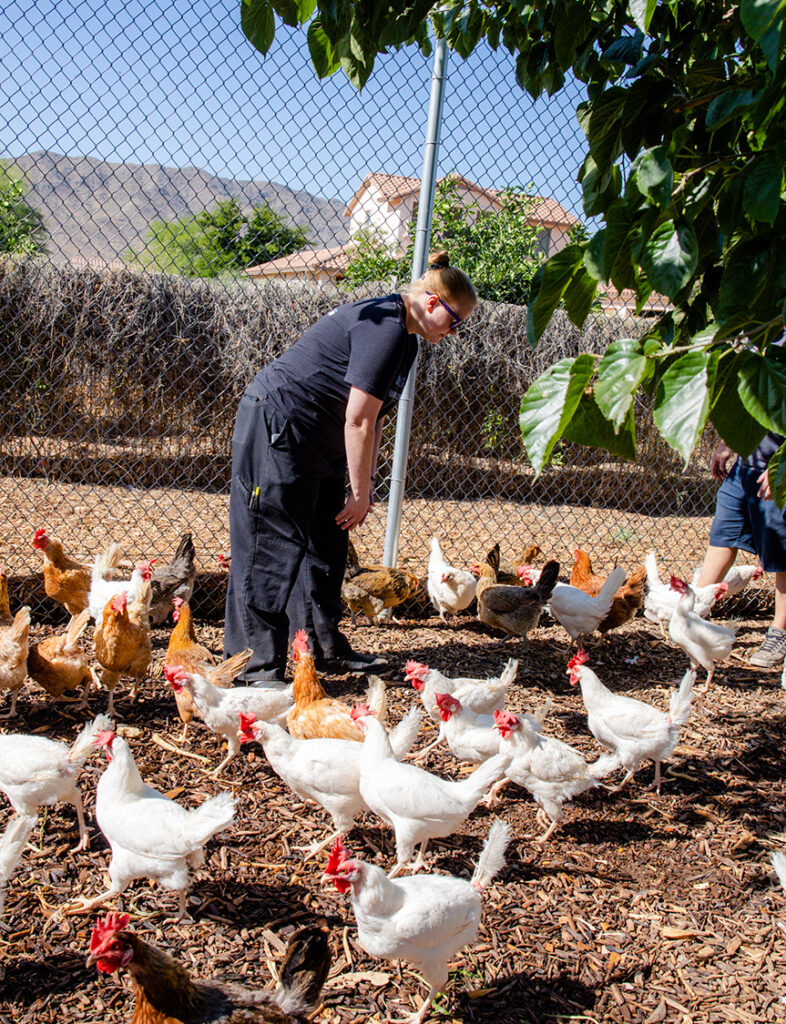
M Culinary also packages up excess food from its events—food that hasn’t been served or exposed to the public—and donates it to Waste Not, an Arizona nonprofit. Waste Not picks up the food and distributes it to shelters and other nonprofits that help Arizonans facing food insecurity. Every pound of rescued food feeds at least 1.25 people. M Culinary donated more than 48,000 pounds of food in 2023.
2. Large-Scale Events
ECEP members regularly exchange valuable insights for managing significant events. John Crisafulli, chef and owner of Behind the Scenes (BTS) in San Diego, is especially skilled in this, having successfully catered 12 Olympic Games. He generously shares the detailed processes he and his team employ when developing menus, handling logistics and sourcing local products for the upcoming 2024 Olympic Games in Paris.
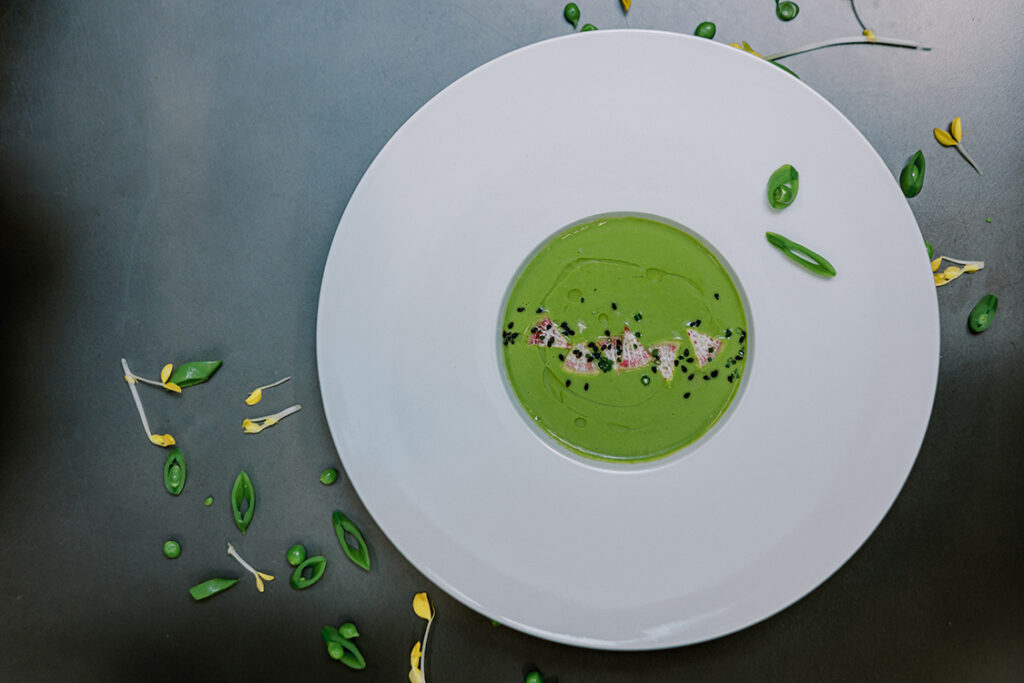
BTS’ primary mission involves crafting culinary delights for broadcasters and media personnel. They are also collaborating with sponsors to curate VIP hospitality experiences. Between now and the Paris Games, Crisafulli—along with Chef Melissa Chickerneo and their dedicated team—will be making regular visits to Paris to meet with vendors, ensure the integrity of the supply chain, taste-test various prepared items sourced from local markets, and collaborate with the Paris organizing committee to establish temporary kitchens.
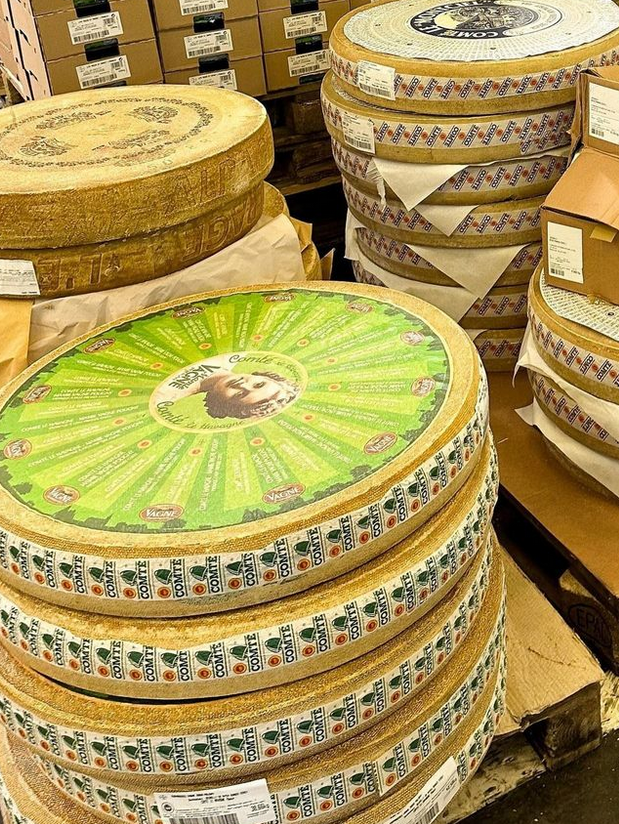
They will also oversee the recruitment and training of hundreds of local staff. These personnel will handle a wide range of responsibilities, from providing meals to the working crew to delivering VIP hospitality services for athletes and heads of state. Additionally, the team will coordinate their efforts with the sustainability goals and guidelines set forth by Paris 2024.
3. Unique Food Presentations
Butler’s Pantry in St. Louis leans into client themes to create unique food presentations and get guests talking at events. These small touches are also what make a dining experience memorable.
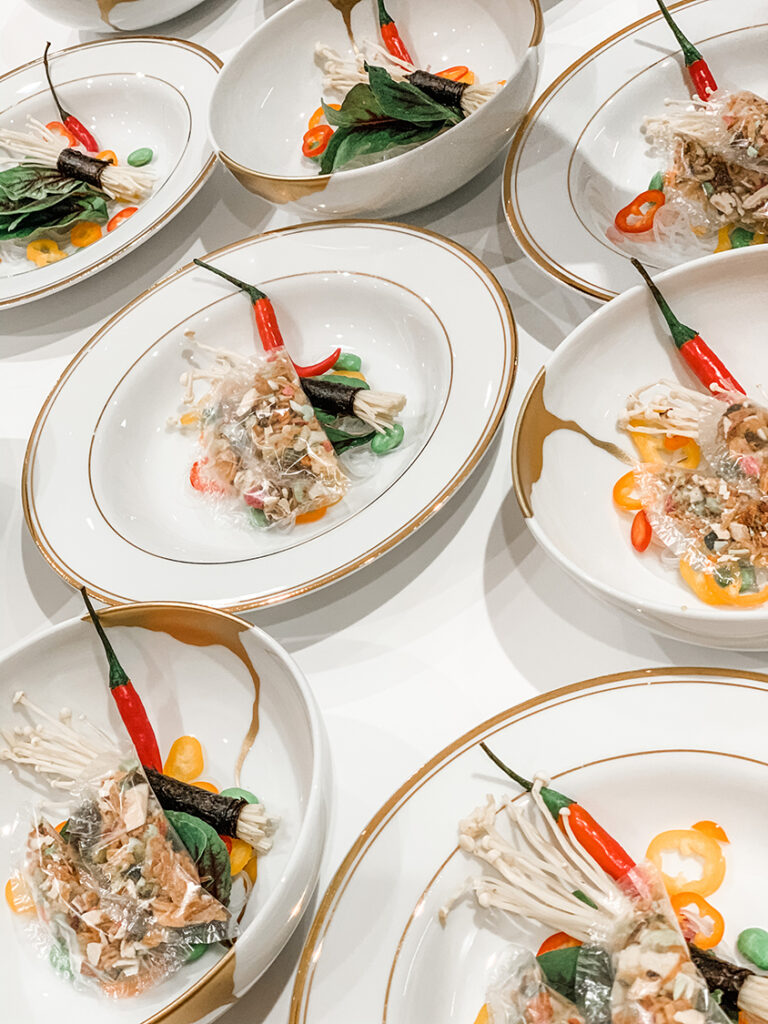
“For a James Bond-themed party, we were drawing specific inspiration from the Macau casino scene in Skyfall,” says Maggie Barton, CEO of Butler’s Pantry. “The menu needed to have whispers of Asian influence, while offering moments of mystery and surprise.”
To set the tone for the rest of the experience, the concept of the Disappearing Vegetable Dumpling was born. Guests were served bowls of dehydrated dumplings. The team returned to tables to pour hot tea from antique pots into each bowl. As diners watched, the wonton wrappers vanished, leaving the vegetable filling rehydrated and an entirely new starter of soup created. Summarizes Barton: “It was a hit!”
4. Inspired Marketing
To show off a recent brand refresh, 24 Carrots in Costa Mesa, California, created mini 24 Carrots trucks for attendees at a hospitality workshop.
“It was the perfect gift to represent our catering and event services,” says Carizza Rose, 24 Carrots’ director of marketing and creative. “Off-site catering involves a choreographed dance of logistics that is packed up into a truck (or a few), perfectly packaged for each guest, and it takes a full team to deliver an exceptional experience.”
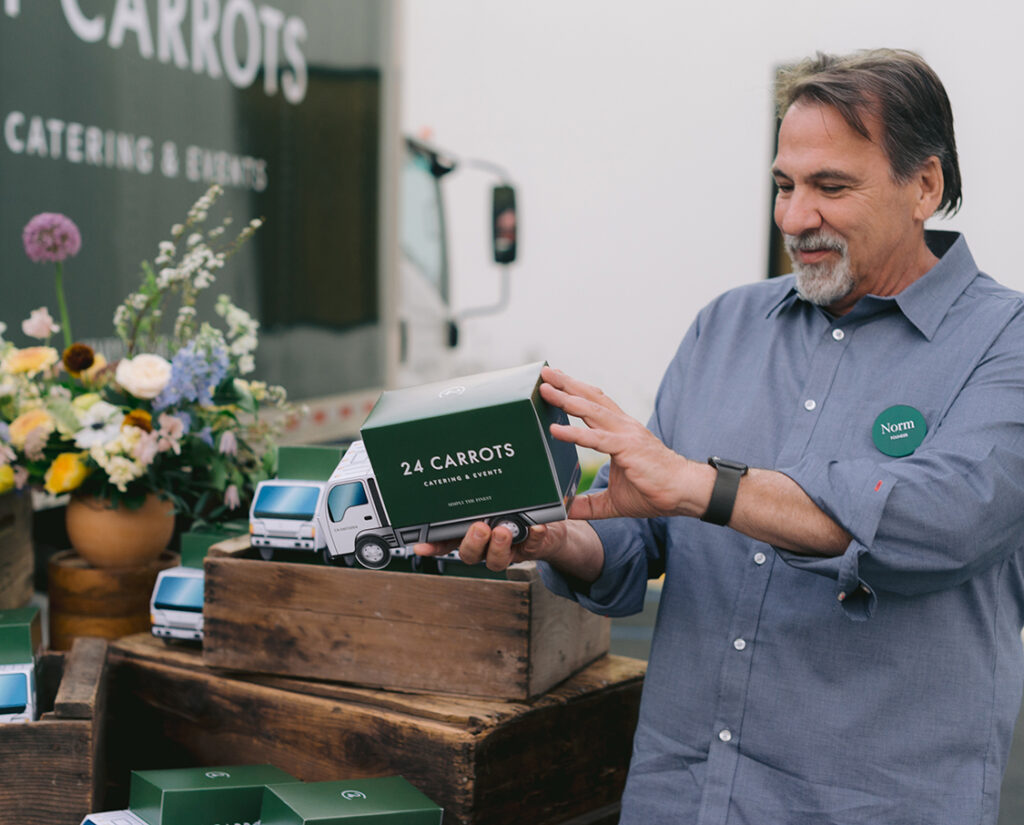
The gift was designed with multiple surprises—inside each truck was a stack of churro Rice Krispie treats on top of a custom mini pallet. “We wanted to convey that we pay attention not just to details but to people, and the efforts that we’ll take to put a smile on our guests’ faces,” says Rose. “We measure successful branding not by the logo on the trucks or the engraved mini pallets, or not even by the truck license plate that had our founding date on it, but rather by the impact that we make daily: to our clients, partners and especially each other. Our goal is to create and inspire. Our passion for doing so comes through in truckloads.”
For more information on ECEP, visit ecep.online.
ABOUT THE AUTHOR

Liese Gardner began her journey in the catering and event world as editor of Special Events magazine and director of education for The Special Event. Now owner of Liese Gardner Communications, she continues to write about the industry and connect event professionals with their ideal clients through Brand Therapy, her own style of marketing and legacy building. For more information, visit liesegardner.com.










